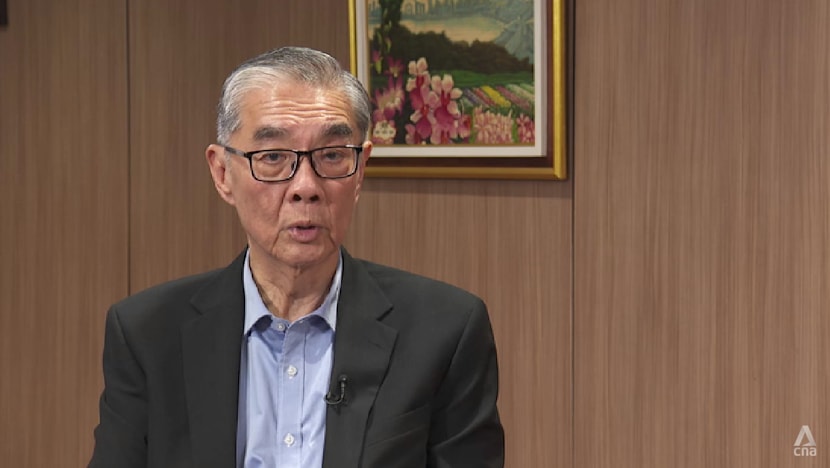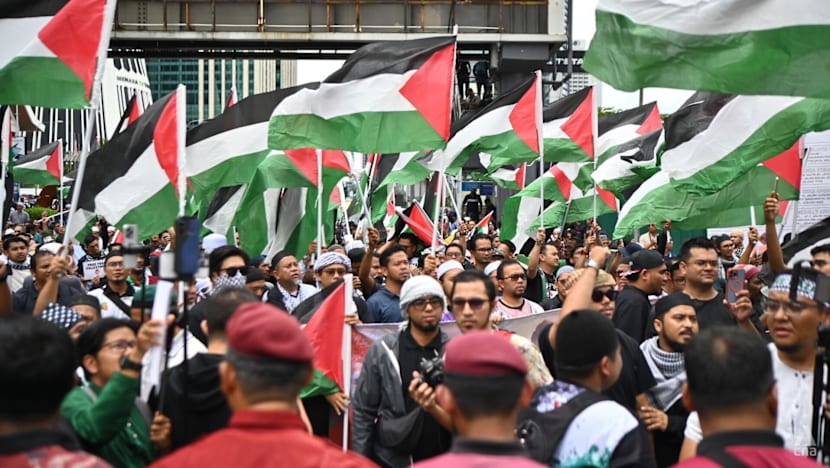ASEAN’s growing geopolitical and economic clout draws attention from world leaders: Former sec-gen
Several world leaders including United States President Donald Trump are expected to attend the ASEAN Summit in Kuala Lumpur.

Former ASEAN secretary-general Ong Keng Yong said the presence of world leaders at the ASEAN Summit underscores the bloc's role as a key convening platform, where countries seek to engage it to advance their own interests.

This audio is generated by an AI tool.
ASEAN is both geographically and economically “very important” to many of the world’s major powers, said the bloc’s former secretary-general Ong Keng Yong.
This comes as several world leaders including United States President Donald Trump are expected to attend the upcoming Association of Southeast Asian Nations (ASEAN) Summit in Kuala Lumpur.
Mr Ong, who is ambassador-at-large, said the presence of these leaders underscores ASEAN’s role as a key convening platform, where countries seek to engage the bloc to advance their own interests.
“The yearly challenge for us is what they will individually offer or discuss with our leadership when they come,” he told CNA.
“I think the ASEAN Summit attracts all these top leaders to the event because they all have something to present and discuss with us, and we have something to present and discuss with them.”
The 47th ASEAN Summit and related meetings will be held from Sunday (Oct 26) to Tuesday.
On the agenda are ways to boost economic integration, lower security risks and advance the energy transition.
The regional grouping’s centrality extends beyond geography, said Mr Ong, who served as its secretary-general from 2003 to 2007.
“It's our philosophy and our outlook towards the rest of the world – how we can develop economically, socially and all that.”
He added that the strength of such summits lies in their ability to foster open and spontaneous dialogue among leaders.
REGIONAL CONCERNS
Peace and security remain key priorities at the upcoming summit, where a proposed peace deal between Thailand and Cambodia could mark a significant diplomatic milestone for ASEAN.
The agreement follows deadly border clashes between the two countries in July that lasted five days.
Mr Ong said ASEAN’s approach is not to impose peace through force, but to encourage dialogue and mutual compromise.
The summit is also expected to serve as a platform for advancing peace efforts in Myanmar, which have been in turmoil since the February 2021 military coup that triggered armed resistance and a humanitarian crisis.
Myanmar has yet to fully comply with ASEAN’s Five-Point Consensus, the bloc’s agreed roadmap for a peaceful resolution to the political crisis.
“The Five-Point Consensus of ASEAN is not a washout. It is still a valid document,” said Mr Ong, emphasising that the bloc cannot simply abandon the plan but must instead renew efforts to reinforce it.
Given limited progress, he suggested involving Myanmar’s neighbours – including those outside ASEAN – to coordinate a broader diplomatic approach to ensure peace and stability along shared borders.
“Peace must prevail, at least along the boundaries of the countries involved with Myanmar,” said Mr Ong, who is also executive deputy chairman at the Nanyang Technological University’s S Rajaratnam School of International Studies (RSIS).
At this year’s summit, Timor-Leste is poised to make history as it prepares to formally join ASEAN as its 11th member. The region’s youngest nation gained independence from Indonesia in 2002 after 24 years of occupation.
Mr Ong said ASEAN member states are committed to welcoming Timor-Leste, with a shared focus on helping the small country of 1.4 million people strengthen its economy and human capital.
“In the case of Singapore, we focus on capacity building,” he said. “We hope that the rest of ASEAN will also start to move in and offer whatever each of them can do for Timor-Leste.”

GLOBAL CHALLENGES
On the global front, geopolitical tensions persist.
Mr Ong noted that Southeast Asia faces mounting challenges amid dramatic shifts around the world, and urged ASEAN leaders to stand united when engaging with major powers.
Uncertainty over the Gaza ceasefire will also be high on the summit agenda, alongside discussions on ASEAN’s role in reconstruction efforts there.
Mr Ong said the immediate priority is humanitarian aid and rebuilding, with urgent needs for food, medicine, and other essential supplies amid the widespread devastation.
Meanwhile, ongoing US tariffs continue to impact several ASEAN economies.
Mr Ong believes Trump’s attendance at the summit presents an opportunity for ASEAN to encourage a more balanced and “considerate” US approach amid growing concern over shifting trade measures.
Leaders will also discuss emerging opportunities, including in digital innovation.
Mr Ong stressed that ASEAN’s growth potential remains a strong draw for global investors.
Crucially, the veteran diplomat added, many activities that drive growth in advanced economies can be carried out in Southeast Asia at a fraction of the cost.
However, he noted: “Naturally, if there are troubles around or inside Southeast Asia which will undermine the confidence of the business people or investors, then we may not achieve some of these hopes that we are harbouring.”


















